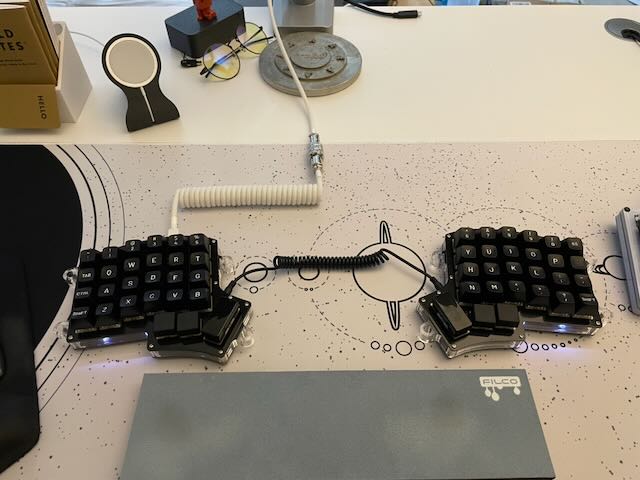
- From Keebio
The Iris is one of my favorite splits. While it is pretty obviously a proprietary variant of the lily58 or Sofle open keyboards, the Iris is really well done. As with most Keebio products, there’s very little to “build”. This version of the Iris came ready for switch installation. The revision is designed for soldered switches but the holes are just barely big enough for Mill-Max sockets. I chose the tenting middle plates and, while I’m not currently using tenting on any of my boards, the plate is a good choice due to its solidness and transparency for the underglow LEDs. The Iris supports QMK and comes flashed with QMK/VIA. On this revision, the Iris supports two 1U switches at the thumb spot or a single 2U key, which is pictured below.
Later revisions of the Iris add hotswap support through Kailh sockets, switch the TRRS jack over to USB-C and, sadly, remove support for the single 2U thumb key. Keebio also offers assembly services now.
The USB-C switch is something I wish everyone would do. The connector is way more fiddly to solder, true, but it doesn’t have the power problem. In a TRRS jack, one of the rings is carrying power. During the insertion and removal process, that ring gets scrapped across the others and can short out the MCU. Standard procedure is to never remove the TRRS cable while the board is powered. The USB-C connector does not have this problem so the user can remove the cable all they want during regular operations.
Summary
The Iris is a very solid board from a high quality vendor. As much as I wish they’d open their designs, I never have any qualms about buying from Keebio. That said, if you like the look of the Iris but want open hardware, take a look at the lily58 or the Sofle.
